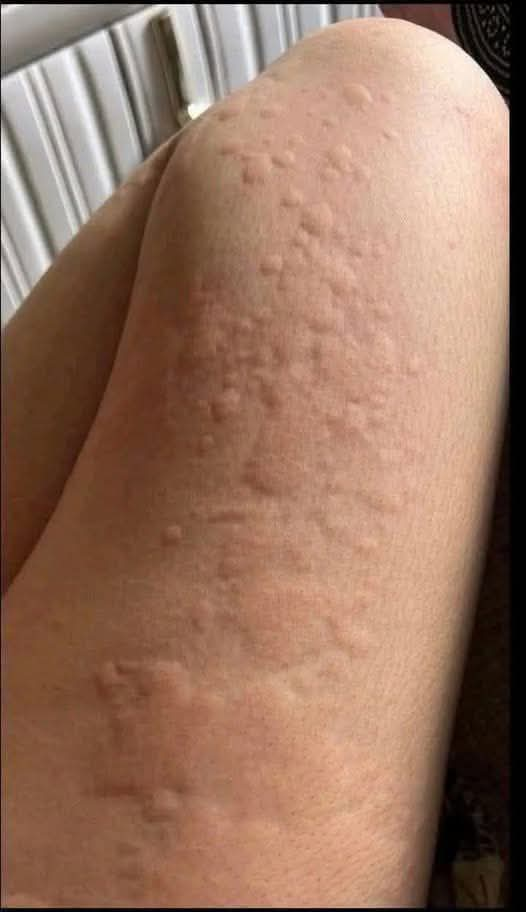What started as a mild itch on his forearm didn’t seem like a big deal to James. He figured it was just a reaction to something minor—maybe dry skin or a bit of irritation from the weather. He hadn’t changed his laundry detergent, his soap was the same brand he’d always used, and his diet hadn’t shifted recently.

Yet the itching didn’t go away. In fact, it began to spread, and soon he noticed small raised bumps showing up on his arms and legs. At first, he brushed it off as a seasonal allergy and grabbed some over-the-counter antihistamines, expecting things to settle down in a few days. But as the nights wore on, the itch became more intense. It kept him awake, scratching until his skin was raw and irritated. The discomfort began to affect his daily life, making it hard to concentrate at work and leaving him constantly fatigued. After a week of no relief, James finally decided to see a dermatologist, hoping for a clear answer.
During his appointment, the doctor asked about James’s symptoms, medical history, and lifestyle. After a full skin exam and some lab testing, the dermatologist delivered a diagnosis James hadn’t expected: chronic urticaria. This condition, also known as chronic hives, is marked by the repeated appearance of itchy welts on the skin that last for more than six weeks and have no clear cause. The diagnosis surprised James because he had always thought hives were something that came and went quickly after eating something odd or encountering an allergen. However, in chronic urticaria, the triggers aren’t always easy to pinpoint. In many cases, it’s tied to the immune system being overactive or misfiring.
Stress, viral infections, or even environmental factors can sometimes contribute to flare-ups, but often no specific cause is ever identified. While the condition isn’t life-threatening, it can significantly impact quality of life if not properly managed. With a treatment plan that included a combination of prescription antihistamines and lifestyle adjustments, James began to see improvements. His doctor also emphasized the importance of reducing stress, staying hydrated, and keeping a symptom diary to help track any potential triggers over time. Within a few weeks, his symptoms started to ease.
The itching became less constant, and the welts faded. Most importantly, he could finally sleep through the night again. James’s experience serves as a reminder that skin issues—while often seen as surface-level annoyances—can sometimes be early indicators of deeper health concerns. It’s tempting to self-diagnose when symptoms seem mild, but ignoring persistent signs can delay proper treatment and prolong discomfort. Not every itch is just an allergy, and not every rash is caused by something external. For those experiencing similar symptoms, knowing when to seek medical attention can make a world of difference. If you’ve been dealing with itching that doesn’t go away after several days, or if your skin develops red, swollen, or raised bumps, it’s time to consult a healthcare provider.
This is especially true if the itch interferes with sleep, daily tasks, or if it spreads to multiple parts of the body. Also, be aware of serious warning signs like difficulty breathing, swelling of the face or tongue, or a rash accompanied by a fever—these require immediate medical care. While over-the-counter remedies can provide relief for minor conditions, they’re not a substitute for professional evaluation when symptoms persist. The skin is the body’s largest organ, and changes in its condition often reflect what’s going on internally. Whether the issue is driven by an autoimmune response, chronic inflammation, or another underlying health concern, catching it early allows for more effective treatment and a better outcome.
In James’s case, his decision to see a doctor changed everything. What seemed like a simple allergy turned out to be a chronic condition requiring consistent care. Thanks to professional help, he regained control of his life and learned to manage his symptoms effectively. So if you’re experiencing persistent skin irritation, don’t ignore it. Seek guidance, get a proper diagnosis, and take control of your health before a minor itch turns into a long-term struggle.
Disclaimer: This content is for informational purposes only and is not a substitute for professional medical advice. Always consult a licensed healthcare provider regarding any symptoms or treatment options.





